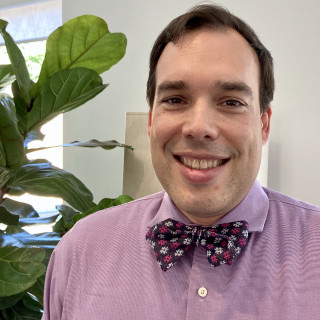“Doctor, do you think that I should get the COVID-19 vaccine?” This was how my busy clinic day commenced.
I had two reactions to this deceptively simple question, posed by a patient with metastatic breast cancer receiving chemotherapy. The first was selfish concern — for potentially making me fall behind, since I had 18 follow-up appointments scheduled at 20 minutes apart and two new patients. The question was one that most physicians have been asked multiple times, and one that can lead to exceptionally long discussions. The potent mix of COVID-19, cancer, and vaccines can trigger impassioned political diatribes, which I prefer to avoid. My second reaction was ambassadorial — as a member of the scientific community, dressed in a white robe, I must somehow “defend” the science behind vaccines.
Fortunately, I disregarded these initial reactions, took a sympathetic empirical approach, and asked a few questions of my own before answering hers. I was curious as to what was lying behind her question and, for the moment at least, threw work efficiency out of the exam room. It turned out that my patient just wanted some reassurance. Her husband and much of his side of the family were very skeptical of COVID-19 and still firmly against vaccination. Feeling vulnerable due to her cancer diagnosis and chemotherapy, she wanted to get the vaccine. But she wanted to do so without making too much fuss about it, since this was a contentious issue with her husband.
She also had legitimate questions about how effective the COVID-19 vaccine — or any vaccine for that matter — would be when given along with myelosuppressive chemotherapy. Even if, at times, I might not be able to provide decisive answers to some questions, I knew that I could still listen and empathize with a patient’s uneasiness with uncertainty.
What medical science has accomplished over the last year by developing several extremely effective vaccines is unprecedented and nothing short of miraculous. However, no matter how much science advances, there always remains an endless array of unanswered questions.
As a medical oncologist, I get asked many of these questions by patients and families all the time: Why do treatments stop working in metastatic cancer? How can I know if the cancer is going to come back? Why did I get breast cancer if I do not have any mutations and maintain a healthy lifestyle? As David Weatherall eloquently describes in “Science and the Quiet Art,” medicine very much remains art and science. Consequently, although most physicians are not scientists with PhDs, in the eyes of many patients we are de facto ambassadors of science. As much as we may want to offer certainty to patients and the public, when there are no convincing answers to medical questions, it is much better to offer what Weatherall termed "sympathetic empiricism" — an attempt to understand from the inside, as opposed to the cold objective view of science from the outside.
A sympathetic approach may seem completely counterintuitive at this current historical moment, when the forces of unreason seem to be overpowering science and reason. As ambassadors of science, perhaps, some physicians feel obligated to come to the defense of science. And that’s perfectly within our scope as physicians. But it is worth remembering that, at the beginning of the last century, the predominant belief was that science had become too powerful. At that time, it seemed Newtonian physics and Darwinian evolutionary biology had reduced everything down to simple mechanical laws, and in the process, were destroying the mystery of being.
The philosopher Friedrich Nietzsche dubbed this rationalist paradigm of scientists and philosophers Apollonian, after the god of oracles. He contrasted this with what he called Dionysian, referring to the beautiful, irrational, and chaotic aspects of life — emotions, instincts, religious/spiritual ecstasy, music — after the god of wine and dance. He felt that the great mystery of being needed protected people against rationalistic smugness. Nietzsche felt that aesthetic beauty and the spiritual needed defending against life-denying intellect — the opposite of what seems to predominate today, with the Apollonian seemingly on the ropes.
Yet this view of science as a life-denying and all-knowing entity is overly simplistic.
Scientific knowledge is not some bright, blinding Apollonian sun that illuminates everything — it’s more like a small torch in the darkness. Science doesn’t definitively prove anything; it can only disprove. And anything that is not disprovable lies beyond the torch of science. There are many mysteries that science can never answer.
As art and science, medicine quietly incorporates both Apollonian and Dionysian, like the two serpents entwining the caduceus. This is the true beauty of medicine, that it quietly weaves both reason and mystery. As physicians, we move between scientific certainty and compassion in the presence of human suffering. And when we are at our absolute best, instead of arrogance and bluster, we offer sympathetic empiricism, when science cannot yet illuminate our way out of the darkness.
Do you believe medicine is more art or science? Share your thoughts in the comment section below.
Dr. Montero is a medical oncologist specializing in breast cancer. He is a husband, father of two teenagers, writer, amateur photographer, and part-time philosopher.
Click here to see more perspectives on COVID-19 from the Doximity network.
Click here for up-to-date news about COVID-19 on Doximity.







